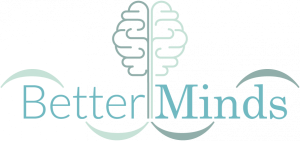Relapse
Relapse is very common but despite this it is often devastating for those affected. It can affect colleagues in recovery and newly recovered service users, whilst long discharged former service users can be equally vulnerable. Guilt, shame and for some, the conflict between professional expectation and person needs results in relapse. With effective strategies this period of relapse can be reduced, engagement in services accelerated and positive outcomes achieved.
An Introduction to the Betterminds' Relapse Course
The Betterminds Relapse Course is designed to help learners to recognise that lapse and relapse are very different and the skills needed to help someone move forwards from a point of relapse are centred less around practical reduction but more on self esteem and managing destructive emotions.
The course will offer skills and techniques to identify those at greater risk of relapse, how to self manage and support those people. The course will also offer tools and techniques to challenge catastrophising and to re-motivate those how have lapsed to restore their recovery journey.
Relapse is a huge risk for professionals who are employed in caring professions as they are less likely to seek support for any lapse episodes as it can impact on their career. The training will look at strategies to address this.
How Long is the Relapse Course?
The Betterminds Relapse Courses usually run for a single day, however, this may be extended depending on the requirements of your organisation.
What Will My Team Gain From The Betterminds' Relapse Course
This course is designed to help learners understand that relapse needs very different skills to lapse. Lapse is focused on self esteem and effective change comes from the high expectations of the support worker, alongside effective tools for change.
You will learn approaches to stop catastrophising.
Approaches to build a nonjudgemental growth mindset.
How to move those who are lapsing to take action effective action.
Where Will The Betterminds' Relapse Course Be Useful
This course is especially effective for teams who deal with service users in addiction recovery including substance misuse, mental health teams, medial settings, social housing, social care, criminal justice teams.
What Are The Primary Course Objectives
- Understand the difference between lapse and relapse
- Understand the differences between triggers, cravings and urges
- Understand the circumstances that allows a relapse to evolve & interventions to reduce this risk
- An understanding of some of the neuroscience behind a relapse
- Have tools to address triggers, cravings and urges
- Tools to reduce the intensity and duration of a relapse.
What Else Will Our Team Learn
- You and your team will be able to identify and challenge the destructive language that can create a relapse
- You and your team will understand and challenge destructive emotions that can create and sustain a relapse
- Be able to understand and challenge destructive behaviours
- The ability to use relapse as a recovery tool
- You will be able to feel more confident as a practitioner
- Change the culture so that relapse is seen as a normal, but not a necessary stage of recovery
